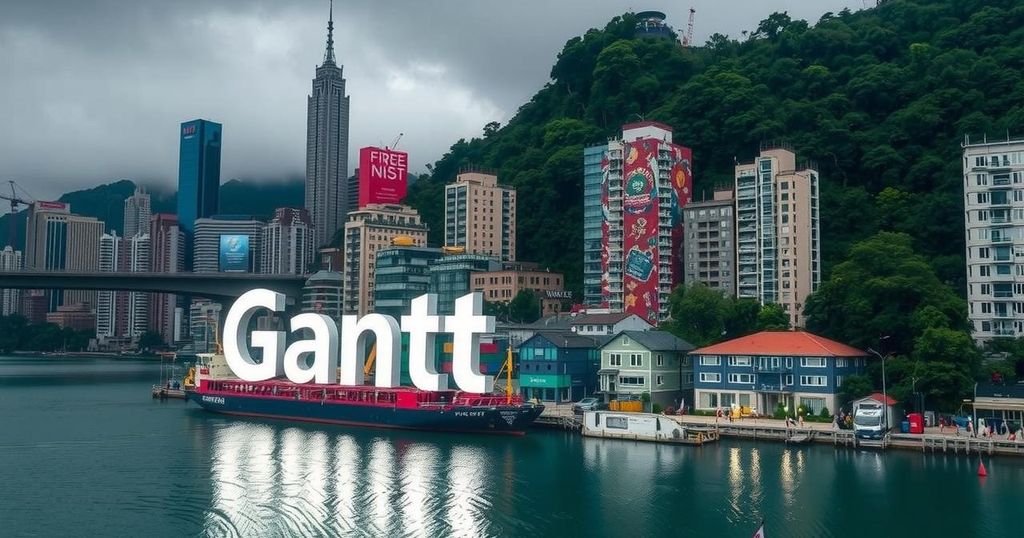Cars
AFRICA, APPLE, APPLE FRANCE, APPLE GROUP, APPLE RETAIL, APPLE RETAIL BELGIUM, APPLE RETAIL FRANCE, BELGIUM, CENTRAL AFRICAN COUNTRY, CHRISTOPHE MARCHAND, CONGO, CORRUPTION, DELL, DEMOCRATIC REPUBLIC OF CONGO, DR CONGO, EUROPE, FRANCE, GOOGLE, HUMAN TRAFFICKING, INTERNATIONAL COLLABORATION, LEGAL, LEOPOLD II, MICROSOFT, MONEY LAUNDERING, PARIS, ROBERT AMSTERDAM, RWANDA, TESLA, TRIAL, U. N, U. S, UNITED NATIONS
Sofia Rodriguez
0 Comments
DR Congo Initiates Criminal Lawsuit Against Apple Over Conflict Minerals
The Democratic Republic of Congo has filed a criminal suit against Apple subsidiaries in France and Belgium, alleging involvement in the extraction of conflict minerals. The accusations include complicity in war crimes and deceptive practices regarding mineral sourcing. This case underscores the broader issues of corporate accountability concerning human rights violations and resource exploitation in conflict regions, seeking to invoke judicial action against a major tech entity.
The Democratic Republic of Congo (DRC) has initiated a criminal lawsuit against Apple subsidiaries operating in France and Belgium, accusing them of involvement with conflict minerals sourced from their territories. This case highlights concerns surrounding the extraction of tin, tantalum, and tungsten—minerals essential for technology production—often exploited through artisanal mining controlled by armed groups known for their violent behaviors.
The DRC’s legal claims include serious allegations such as complicity in war crimes, laundering of minerals linked to illegal activities, and deceptive commercial practices suggesting ethical supply chains. The complaints, officially submitted to authorities in Paris and Belgium, accuse not only local branches, such as Apple France and Apple Retail Belgium, but also the wider Apple group.
Christophe Marchand, the DRC’s lawyer in Belgium, emphasized the historical context, asserting Belgium’s moral obligation to assist the DRC in reclaiming its resources exploited since the colonial era. The DRC’s legal team emphasizes the broader implications of corporate responsibility in resource extraction and the link to ongoing violence in the region.
The outcome of this legal action depends on whether judicial authorities decide to pursue further investigations based upon the presented allegations. This action marks a significant moment, as it represents one of the first instances in which a government has engaged legal proceedings against major technology corporations regarding their supply chains.
Previously, an attempt made in the U.S. to hold multiple tech firms accountable for child labor practices in Congolese cobalt mines was dismissed. Recent claims from the DRC’s legal representatives assert they possess whistleblower evidence linking Apple to minerals sourced from conflict-ridden areas, suggesting a deliberate obfuscation of the company’s true sourcing practices. Apple has countered these claims, insisting its audits guarantee the integrity of its supply chains, yet these assurances are increasingly scrutinized amid ongoing allegations of illegal mineral acquisition.
The Democratic Republic of Congo is rich in natural resources, particularly conflict minerals such as tantalum, tin, and tungsten, often referred to collectively as the 3T minerals. These materials are critical in the production of consumer electronics, yet their extraction has long been associated with human rights abuses, including exploitation by armed groups. The consequences of illegal mining operations are pervasive, contributing to violence, societal instability, and humanitarian crises in the region. The United Nations, alongside human rights organizations, has voiced concerns about the involvement of international corporations in these conflicts, pushing for greater accountability and transparency within international supply chains.
The criminal lawsuit filed by the Democratic Republic of Congo against Apple marks a pivotal moment in the discourse surrounding corporate responsibility in mineral sourcing. The allegations highlight a need for transparency and ethical practices within global supply chains, especially concerning conflict minerals that contribute to violence and human rights abuses. Ultimately, the case could establish significant legal precedents for how companies are held accountable in their sourcing practices, especially in conflict-affected regions.
Original Source: technext24.com




Post Comment